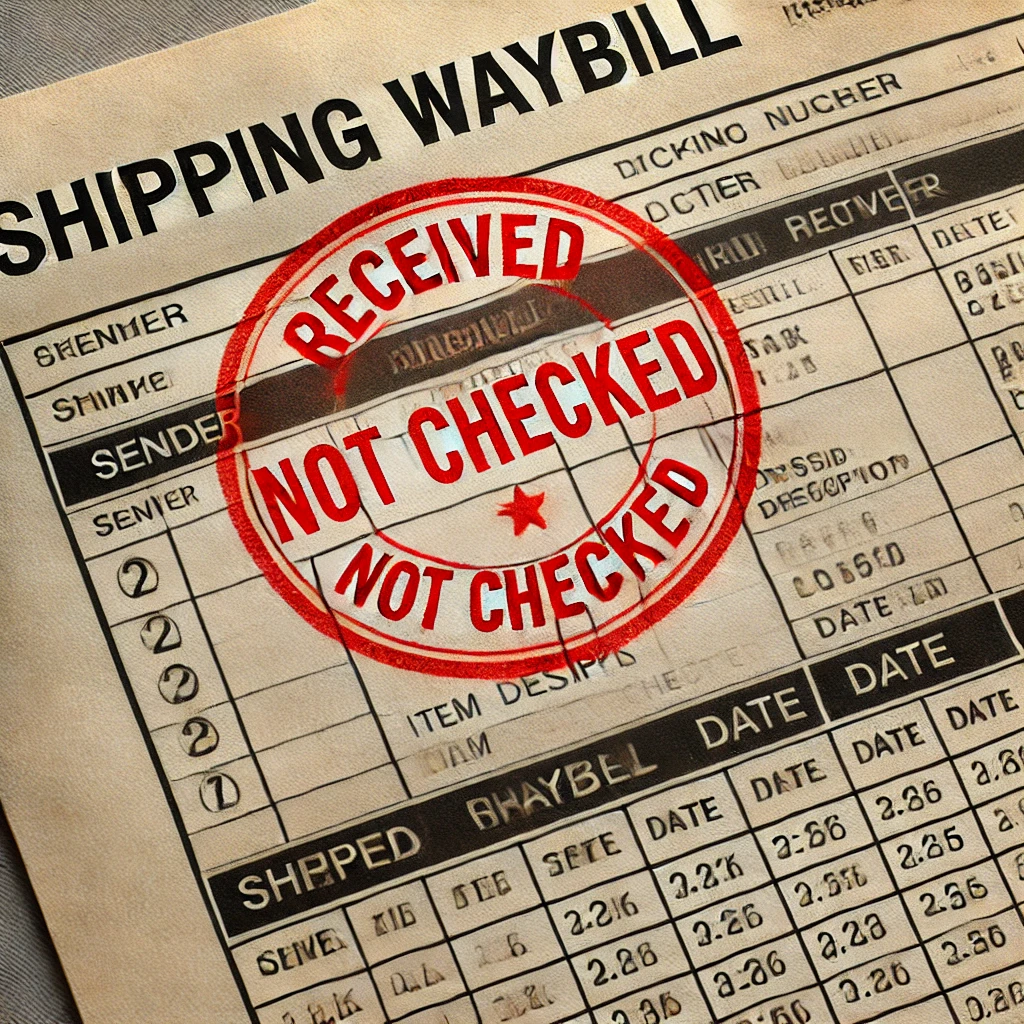
Does “Goods Received, Not Checked” have any Legal Effect?
As claims administrators we are often confronted by angry claimants who insist that because they issued a “goods received, not checked” stamp on the Proof of delivery, the POD cannot be regarded as a “clean”.
This blog examines whether the application of a stamp stating “Goods received. Not Checked” has any legal effect under South African law, particularly in the context of contract law, consumer protection, and commercial transactions.
What is the Legal Position?
Under South African law, the mere application of a stamp stating “Goods received. Not Checked” does not absolve the recipient from obligations arising from the contract of delivery.
South African contract law is primarily governed by the principle of pacta sunt servanda, meaning that agreements must be honoured, and contracts must be kept. If a contract stipulates that the recipient must inspect goods upon delivery or within a reasonable time, the use of a stamp cannot unilaterally alter these obligations.
Under South African common law, a party who signs a document (or uses a stamp on a document as a form of signature )is generally bound by the terms of the document, unless fraud, misrepresentation, or duress is proven.
In other words, once you have signed the document (even by means of using a stamp ”not checked”) you have agreed to be bound by the terms and conditions that are encompassed by that document. So in the case of freight, that document would be a waybill, which includes the terms and conditions of the freight company which would enforce its contractual rights. Therefore, a stamp merely indicating non-inspection does not create or remove contractual rights.
Courts will assess the surrounding circumstances and contractual terms rather than relying solely on a stamp.
South African courts have consistently held that disclaimers and unilateral declarations that attempt to exclude liability must be reasonable and agreed upon by both parties.
The risk associated with delivered goods typically transfers upon acceptance, as per the passing of risk doctrine in commercial transactions. If a contract specifies that inspection must be done within a certain timeframe, merely applying a stamp does not override these terms or prevent liability for defects discovered later.
What if the Receiver is a Consumer as defined by the Consumer Protection Act 68 of 2008?
The CPA places clear responsibilities on freight companies to handle goods with care, prevent damage or loss, and honour consumer rights. Attempts to contract out of negligence or impose unfair liability disclaimers may not be enforceable. Consumers have the right to claim damages, request re-performance of services, or seek compensation if the freight company fails to meet its obligations.
Conclusion
The use of a stamp stating “Goods received. Not Checked” has no legal validity in South African law. It does not override contractual obligations, consumer protection rights, or common law principles regarding delivery and risk. Any disputes concerning defective goods will be assessed based on the contractual terms, statutory protections, and the conduct of the parties rather than the mere presence of such a stamp.
Recommendations
Businesses should ensure that their contracts clearly stipulate inspection procedures and timelines for reporting defects. Consumers and purchasers should not rely on stamps or disclaimers but should rather insist on a reasonable opportunity to inspect goods and document any defects upon discovery.
Suggested clause to be added to a freight company’s terms and conditions:
- Proof of Delivery and Acceptance:
- The consignee or their representative must inspect the goods upon delivery.
- Any signature, stamp, or mark (including but not limited to “Goods received. Not Checked”) shall be deemed as full and unconditional acceptance that the goods were received in good order and condition, unless a written notice of damage or discrepancy is provided as set out below.
- Reporting Damage or Loss:
- If goods appear damaged or missing at the time of delivery, the consignee must note the issue on the Proof of Delivery (POD) before signing.
- Any claims for damage, defects, or shortages must be reported in writing within 24 hours of receipt, failing which the freight company shall not be liable.
- No Waiver of Liability by Markings:
- The use of a stamp, handwritten note, or any other marking indicating “Not Checked” shall have no legal effect and shall not be considered a reservation of rights.
- Failure to inspect goods at the time of delivery does not extend the reporting period or alter the liability provisions under this agreement.